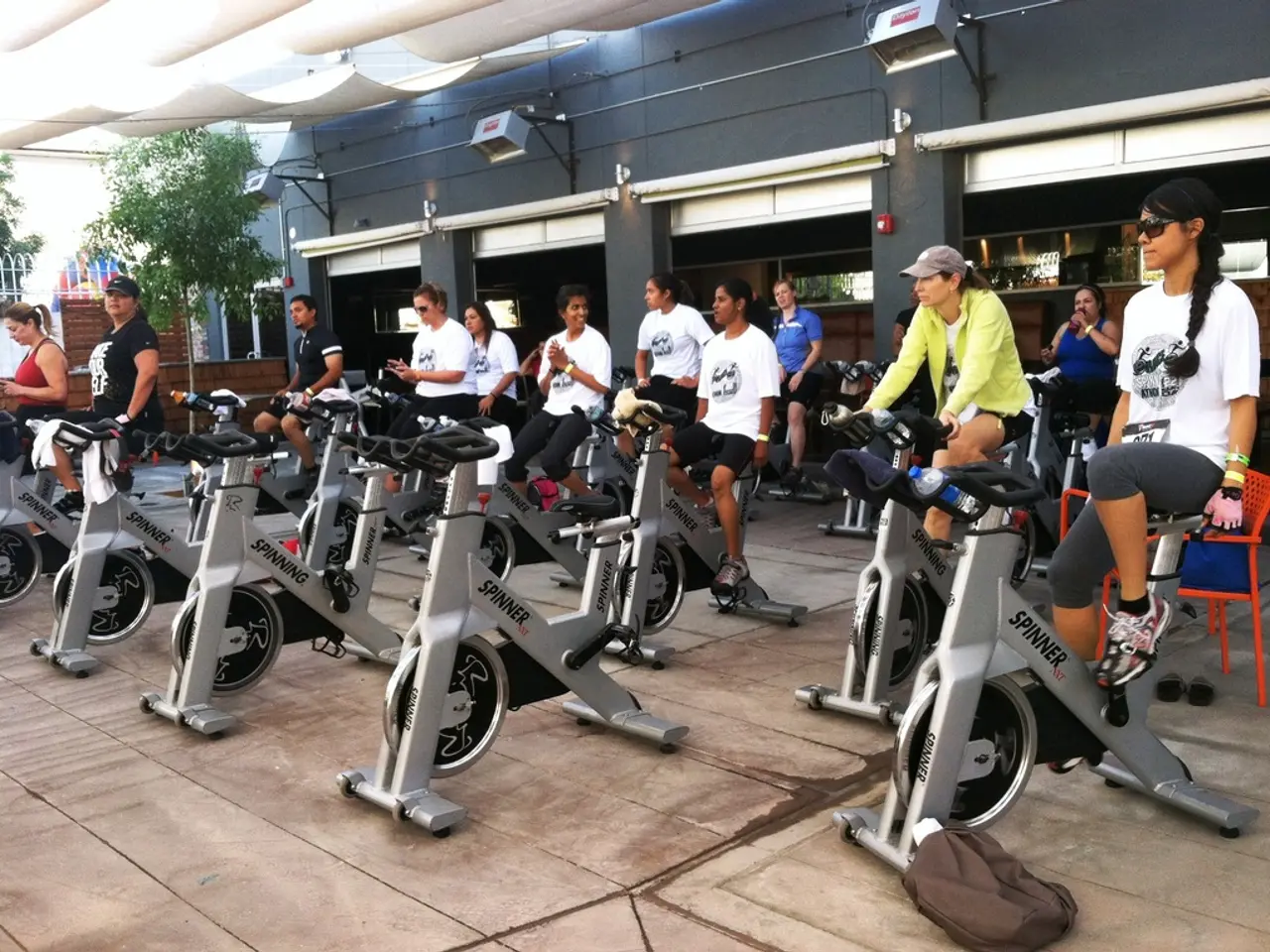Exercises for When You're Struggling with Depression: A Guide
Exercise is no longer just about maintaining a fit physique. It's increasingly being recognised as an effective tool for enhancing mental health and overall well-being.
Gamifying exercise can make it more fun and engaging. Methods like setting personal fitness goals, using fitness trackers, or engaging with apps such as Strava or Pokémon GO can turn daily workouts into enjoyable experiences.
Acting like a kid, by taking a pet for a walk or participating in outdoor activities like geocaching, can also increase physical activity levels. Geocaching, a worldwide treasure hunt, involves walking or hiking to find hidden knick-knacks, often making the exercise feel less like exercise.
Research supports the benefits of exercise on mental health. A 2024 network meta-analysis of 218 randomized controlled trials with over 14,000 participants found that certain types of physical activities, especially strength training, endurance training, and yoga, have clinically relevant effects in reducing depressive symptoms. These effects are comparable to cognitive behavioral therapy or antidepressants.
Light exercise, such as walking or gardening, can also improve depression symptoms, according to a 2017 trial and a 2013 review of research. The key is to find a form of exercise that brings joy and fits comfortably into your lifestyle.
Exercise stimulates the release of neurotransmitters like endorphins, dopamine, norepinephrine, and serotonin, which are associated with feelings of happiness and well-being. It can also benefit the parts of the brain responsible for stress and mood regulation.
Routine exercise can help with depression, according to 2019 research. It's important to note that exercise should be approached with care. Listen to your body, avoiding exercise when sick or injured, or pushing yourself too hard when starting a new exercise routine.
Physical activity can reduce stress levels, making it an effective tool for managing daily stressors. Connecting a pleasurable activity with exercise can make the idea of exercising more appealing. For example, walking can be made enjoyable by visiting favourite places, taking pictures, or walking with friends or co-workers.
In conclusion, exercise supports both mental and physical health. It's a powerful tool for boosting mood and well-being, so consider ways to move that bring you joy. Whether it's a brisk walk, a yoga session, or a game of catch with your pet, every step towards physical activity brings you closer to improved health and happiness.
Read also:
- Nightly sweat episodes linked to GERD: Crucial insights explained
- Antitussives: List of Examples, Functions, Adverse Reactions, and Additional Details
- Asthma Diagnosis: Exploring FeNO Tests and Related Treatments
- Unfortunate Financial Disarray for a Family from California After an Expensive Emergency Room Visit with Their Burned Infant




